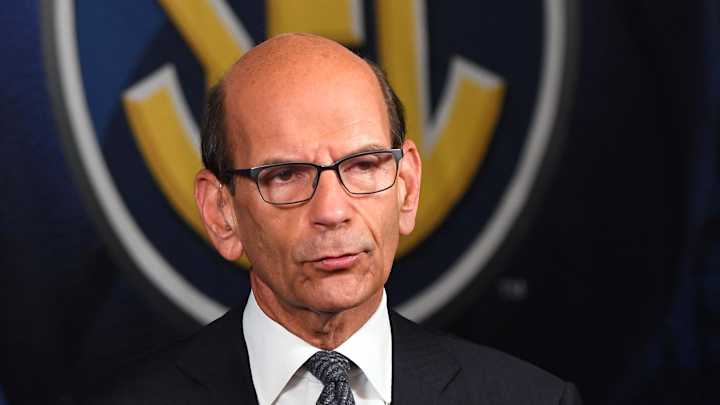
Renowned college football analyst Paul Finebaum has recently voiced his growing concerns about the Georgia Bulldogs’ outlook for the upcoming 2025 season. Known for his candid and often unfiltered takes on SEC football, Finebaum’s comments have stirred conversations among fans, analysts, and insiders alike, prompting a fresh look at the Bulldogs’ position as one of the nation’s perennial powerhouses.
Georgia has enjoyed a remarkable run in recent years, including back-to-back national championships and a roster brimming with NFL-caliber talent. However, Finebaum’s apprehensions stem from a combination of factors that could challenge the Bulldogs’ dominance moving forward.
“Every dynasty eventually faces its crossroads,” Finebaum stated during a recent broadcast. “Georgia’s run has been extraordinary, but the 2025 season will test their depth, leadership, and ability to reload. There’s reason to be worried if they don’t address some key areas.”
One major concern revolves around the Bulldogs’ quarterback situation. After losing a star signal-caller to the NFL draft, questions remain about who will step up under center. While Georgia’s coaching staff has a history of developing talent, the lack of a proven veteran starter raises doubts about offensive consistency and leadership.
Additionally, Finebaum highlighted the impact of transfer portal activity and NIL dynamics, which have shifted college football’s competitive landscape. Georgia, like many programs, has lost several key contributors to transfers or has seen potential recruits opt for other schools offering lucrative NIL opportunities. Maintaining roster continuity and morale in this environment requires deft management.
On defense, while the Bulldogs have traditionally been stout, Finebaum pointed out that several senior leaders have graduated, leaving a question mark over the unit’s ability to maintain the same level of dominance. Young players will need to step into bigger roles quickly, and any early-season struggles could set a challenging tone.
The strength of schedule is another factor Finebaum emphasized. With multiple SEC powerhouses, including Alabama, LSU, and Florida, all aiming to dethrone Georgia, the Bulldogs will face stiff competition week after week. The margin for error is slim, and a slow start could derail championship aspirations.
Moreover, the mental and emotional fatigue of sustaining excellence cannot be overlooked. Finebaum suggested that after years of intense pressure and expectation, players and coaches might face burnout or complacency. “Sustaining greatness is as much about mindset as it is talent,” he noted.
Despite these concerns, Finebaum acknowledged that Georgia’s program is well-coached, well-funded, and deeply committed to winning. The Bulldogs’ culture of excellence, combined with a passionate fan base and top-tier facilities, gives them a solid foundation to overcome challenges.
“Worry doesn’t mean doom,” Finebaum clarified. “It means there are obstacles ahead. Georgia’s response to these challenges will define their legacy.”
Georgia’s head coach and staff have remained tight-lipped publicly about Finebaum’s remarks, focusing instead on offseason training, recruitment, and team building. Insider sources suggest that the Bulldogs are aware of the challenges and are actively strategizing to maintain their status at the summit of college football.
Fans have shown mixed reactions to Finebaum’s comments. Some appreciate the realism and welcome the reminder that no team is invincible, while others view it as an undue critique of a team still loaded with talent and potential.
As the 2025 college football season approaches, all eyes will be on Georgia to see whether Finebaum’s worries materialize or if the Bulldogs will once again silence skeptics by proving their championship mettle. One thing remains certain: the journey will be closely watched by fans, analysts, and rivals eager to witness if Georgia can continue its reign or if a new contender will rise to the occasion.






